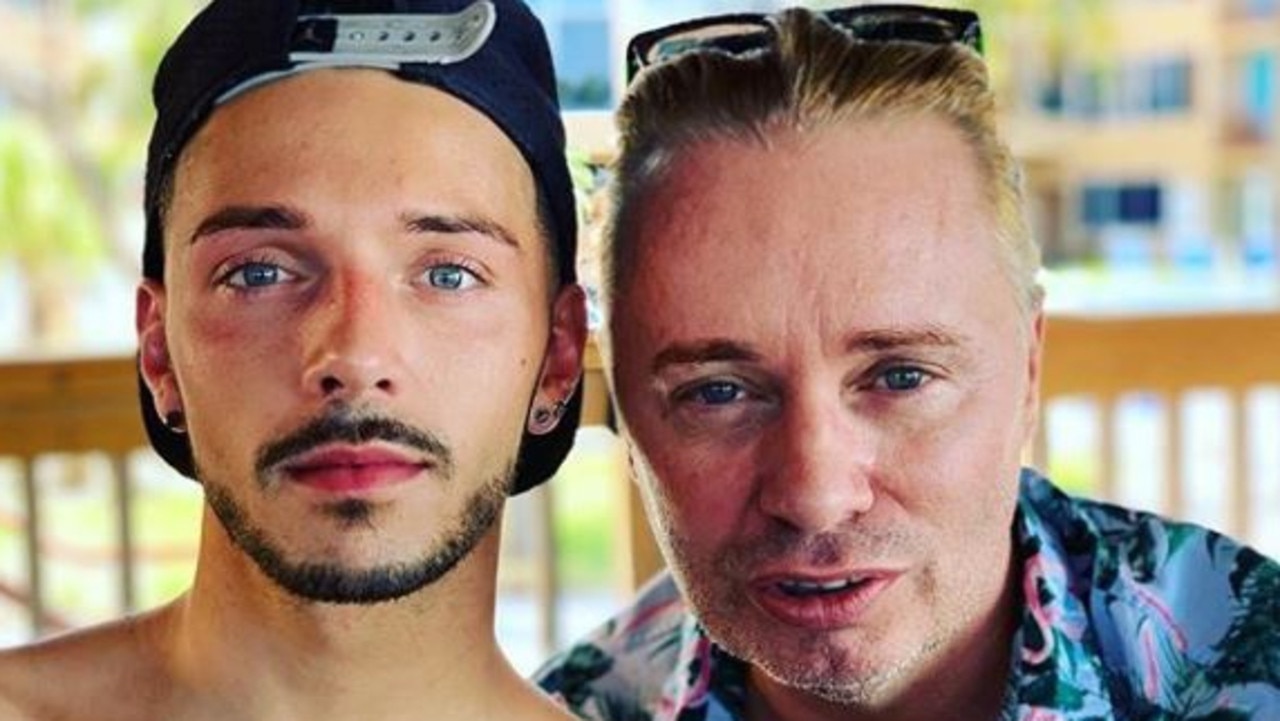Same-sex marriage in Australia: Your questions answered
STRIDENT claims have been flying back and forth for weeks in the same-sex marriage debate. Here are the biggest myths.
gay marriage
Don't miss out on the headlines from gay marriage. Followed categories will be added to My News.
BY NOW most Australians should have received their postal surveys asking them whether same-sex marriage should be legalised.
Recent surveys suggest 65 per cent of Australians intend to take part in the survey, which is not compulsory. Of these 70 per cent said they would support gay marriage.
While many have already made their decision, questions are still being asked by some about the implications.
If you’re confused about some of the claims being made, we’ve got some answers for you:
Is marriage religious?
Although many see marriage as linked to religious rituals, it was a practice that dates back to early tribal groups in Britain, who used it to establish diplomatic and trade ties.
“It was originally a way of getting in-laws, and thereby turning strangers (or potential enemies) into allies or trading partners,” Professor Stephanie Coontz of Evergreen State College told news.com.au.
“That’s why the word for wife in several ancient languages meant ‘peaceweaver’.”
It was also not exclusively limited to two people, consisting of a man and woman. In fact, Roman Emperor Nero was married to not one man, but two.
Prof Coontz, author of Marriage, A History: How Love Conquered Marriage, said as time went on, marriage became a way to manoeuvre for a better position within society, allowed people to raise money for business ventures and consolidated claims to aristocratic power and inheritance rights.
“In ancient class societies, without a state, your kin connections were your own little mini state — it was their job to defend you and avenge you.”
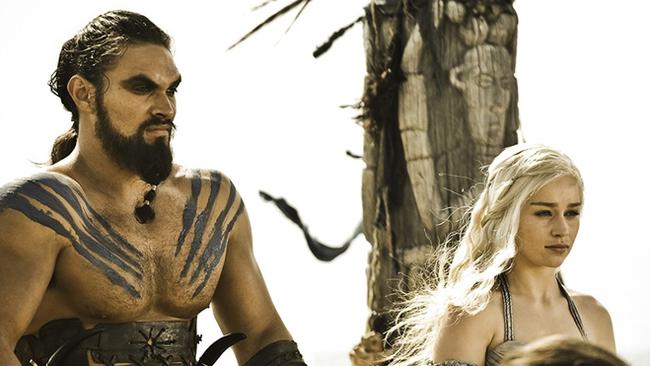
At this point control over marriage became such a powerful resource that parents, kin groups, emergent states and religious institutions (especially Christianity) began to fight over who had control over who could marry and who could not, and what kids were “legitimate.”
“Marriage then became highly politicised, and rival religious groups, or religious institutions that had become closely aligned with various monarchies or states, increased their efforts to shape what would be seen as a valid marriage, when a marriage could or could not be broken, etc.”
The origin of the traditional marriage ceremony dates back to 1140 when Benedictine monk Gratian introduced the idea that couples must give their verbal consent during the marriage ceremony, through a book that formed the foundation for the church’s marriage policies.
Up until that point the consent or wishes of the couple were not considered important — love didn’t come into it.
Meanwhile the marriage vows that couples recite today were developed by Thomas Cranmer, the architect of English Protestantism. He laid out the purpose of marriage and the vows in this Book of Common Prayer nearly 500 years ago.
Of course, not everyone religious is opposed to gay marriage. A recent survey found 58 per cent of Catholics, Christians and people of other religious faiths were likely to vote Yes.
RELATED: What you need to know about the postal survey
Will religious freedom be protected?
Many religious organisations are worried they will be forced to act against their religious beliefs if same-sex marriages are legalised.
Currently, religious organisations — defined as a “body established for religious purposes” — enjoy an exemption to the Sex Discrimination Act 1984.
This means they are allowed discriminate against someone on the grounds their gender, LGBTI status, relationship status or pregnancy.
The exemption applies to the training or appointment of ministers and other roles, and also includes an “act or practice that conforms to the doctrines, tenets or beliefs of that religion or is necessary to avoid injury to the religious susceptibilities of adherents of that religion”.
It means they can already refuse to marry same-sex couples and should be able to continue to do so.
But people are worried this will change if same-sex marriage is legalised.
The Turnbull Government said it would protect these rights in legislation if the Yes vote was successful but won’t release details until after a result is known.
Former prime minister John Howard has been one of the leading voices criticising the decision not to release a draft bill.
“It is important for the government to spell out, in advance of the vote, what steps it will take to protect parental rights, freedom of speech and religious freedom in the event of same-sex marriage becoming law,” Mr Howard said in a statement.
RELATED: ABS warns against posting survey forms on social media
Will a baker be allowed to refuse to make a cake for gay couples?
As mentioned above, the Sex Discrimination Act 1984 outlaws discrimination generally on the basis of sex, sexual orientation, gender identity, intersex status, marital or relationship status or pregnancy.
While religious organisations get an exemption, ordinary businesses do not.
So it’s already illegal in Australia for businesses to refuse to bake a cake for a same-sex couple.
If same-sex marriage is legalised, all that would change is the cake would be for a wedding and not a commitment ceremony or birthday.
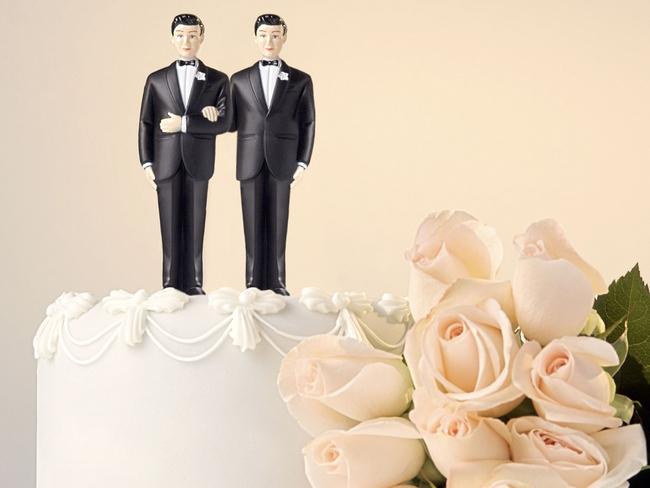
Marriage is between a man and a woman
Australia’s first Marriage Act was introduced in 1961 and set the minimum age you could get married as 18 but did not define marriage.
As Liberal Party federal president Nick Greiner noted in The Australian, the Marriage Act has been changed 20 times since it was introduced by the Menzies government in 1961.
Former prime minister John Howard changed the Marriage Act in 2004 to ensure it stated that marriage was between a “man and a woman” and that gay marriages, which had begun to be legalised overseas, would not be recognised in Australia.
Interestingly before the national Marriage Act was introduced, each state had different laws, including laws in the Northern Territory that did not allow unions between indigenous women and non-indigenous men, and previously set the minimum age of marriage for women in some states as young as 12 years old.
Will gender education in schools become “widespread and compulsory”?
In an ad for the No campaign, mothers expressed their fears that programs such as Safe Schools will be introduced and become compulsory.
The Equality Campaign has criticised the linking of same-sex marriage with gender education.
In fact schools in Victoria have been able to sign up to Safe Schools since 2010 — even though gay marriage is not legal in Australia.
It will also become compulsory in state high schools in Victoria from 2018 regardless of what happens in the postal survey.
Safe Schools is a program aimed a giving teachers information and skills to make school more inclusive for LGBTI people.
It was rolled out nationally in 2013 but its federal funding was pulled starting in 2017 due to concerns over its content.
An independent review released in March last year, drew attention to one lesson in the All of Us resource for students as young as 11, to ask themselves what it would be like to be same-sex attracted.
Exercises in All of Us are given as examples for those signed up to Safe Schools but institutions are not required to do them. However, this lesson was dropped after Education Minister Simon Birmingham announced changes to the program. He also made it necessary for parents to agree to signing up to Safe Schools. Parental consent is needed for student participation in any lessons drawing on All of Us.
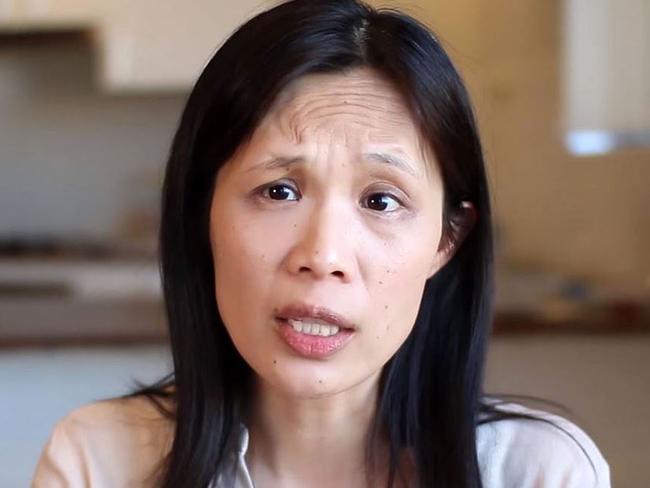
Last year University of WA professor Bill Louden delivered an independent review of Safe Schools that found the program was age-appropriate and noted that it contained more material than would likely be used in most schools.
It didn’t consider the controversial Minus 18 website, but suggested some material on this site would not be suitable for younger students and should not be accessed from inside the school’s internet firewall unless it was specifically approved.
Concerns were raised about Minus 18 because its website contains a link to one website that contains another link to another website, which has a link to an S&M establishment.
What about examples overseas?
In backing its claims, the Coalition for Marriage told news.com.au that “in Canada, where gay marriage is legal, parents have lost the right to choose if their kids are exposed to radical LGBTQI sex and gender education”.
There are areas in Canada that have changed their curriculum to teach children about gender identity and same-sex relationships from Grade 3. But it is not a national program and in provinces like Ontario, parents are able to withdraw their children from sex-education lessons.
Other provinces like Quebec, Saskatchewan and Nova Scotia also teach students about sexual orientation at an early age.
But parents don’t have a right to withdraw their children from all the lessons and as one Ontario parent Steve Tourloukis found out, the school was not required to give him advance notice when his children were taught LGBTQI sex education so that he could remove them.
Mr Tourloukis sued the Hamilton-Wentworth District School Board for failing to accommodate his Christian religious beliefs. His lawyer told CBC he did not chose to enrol his children in the Catholic system because “he’s not Catholic”.
The school board argued that the school was publicly funded and had a duty to accommodate all students. It also pointed out the difficulty of accommodating the request if a topic came up unexpectedly.
“If an unplanned topic around an LGBTQI issue arose and certain students had to leave the classroom, those remaining in the classroom who may identify as such would be left with a feeling that their lifestyle is incorrect or wrong. That’s not fair to the existing student,” Hamilton-Wentworth District School Board chair Todd White told CBC.
The court agreed and said: “(The public education system), by definition, must provide education to the broadest possible cross-section of the population”.
And the Jewish school in the UK?
Another example the Coalition for Marriage gave was of the Vishnitz Girls’ School in the UK.
This private school caters for Jewish girls aged between three and eight years old. It is facing closure after refusing to teach girls about sexual orientation.
In the UK, fee-paying schools are required to meet standards set by the Office of Standards in Education, Children’s Services and Skill (Ofsted) when it comes to sex education.
If it doesn’t, the school will be closed for breaching the Equality Act. However, this act was passed in 2010, four years before same-sex marriage was legalised in 2014.
The requirement is also not a program. An Ofsted spokesperson said the UK’s Department of Education standards require schools to “actively promote fundamental British values such as democracy, the rule of law, individual liberty and respect and tolerance of those with different faiths and beliefs.
“The law expects schools to demonstrate that they are encouraging pupils to take a respectful and tolerant stance towards those who hold values different from their own.”
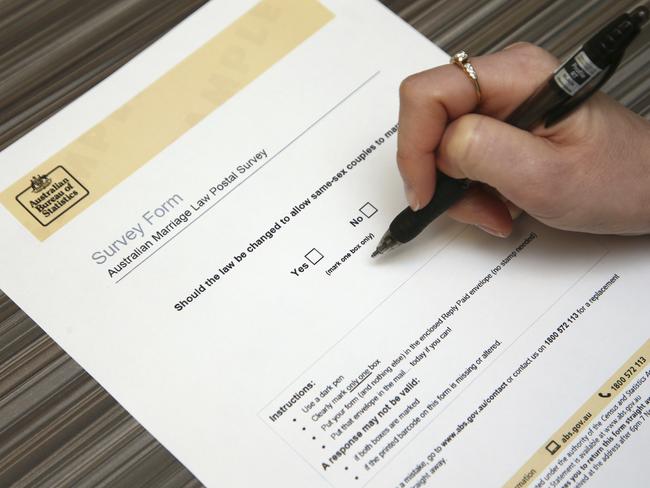
Are they going to implement multiple marriages?
Polygamy is illegal in Australia, something that former prime minister John Howard also cemented in his changes to the Marriage Act when he included the phrase “to the exclusion of all others”.
This could be changed but considering the obstacles the LGBTQI community have faced in getting same-sex marriage legalised, it’s unlikely there would be enough public support for this.
Greens senator Sarah Hanson-Young said using the “slippery slope” argument to deny people equality was a “lazy response to this issue.”
I have concerns about ... children in same sex marriages
Mr Howard also told The Australian there was “clear evidence” the long-term outcomes for children who had a mother and father were superior.
But the Australian Medical Association and the Australia Psychological Society said there was no scientific evidence children of heterosexual parents experienced better outcomes.
“Research confirms that it is the quality of parenting and of relationships and not the gender of parents or make-up of families that determine the healthy development of children. To suggest otherwise is to ignore years of scientific research and study,” APS public interest manager Heather Gridley said in 2012.
The APS supports the legalisation of same-sex marriage, along with the AMA, which said discrimination had a “severe, damaging impact on mental and physiological health outcomes”.
Are people not going to be able to call their parents mum and dad?
One Nation leader Pauline Hanson has expressed her concerns about gay marriage, saying: “Are people going to be stripped of saying ... you cannot call this person mum, you cannot call that person dad because it’s going to offend those families ... who have parents of the same sex?”
But Greens senator Sarah Hanson-Young said: “This has nothing to do with restricting the rights of other people.
“This is actually about giving more freedom to a large number of people in the Australian community who for far too long have been considered second class citizens under the law and it’s time we ended that discrimination. This is about love.”
Got any more questions? Email charis.chang@news.com.au or tweet @charischang2
Originally published as Same-sex marriage in Australia: Your questions answered


